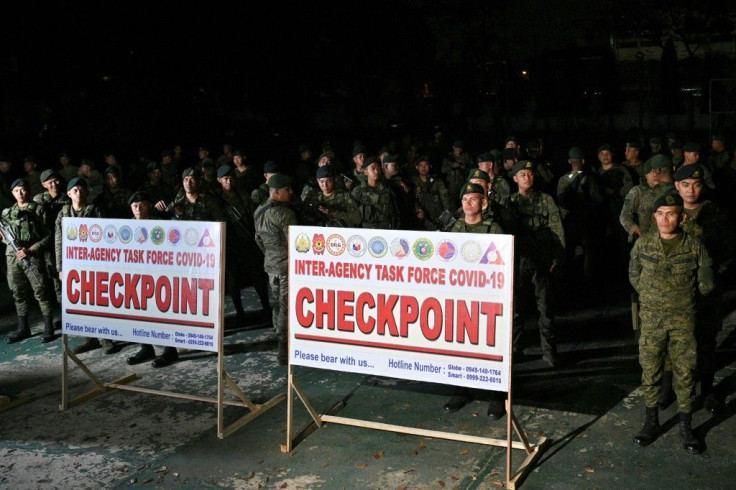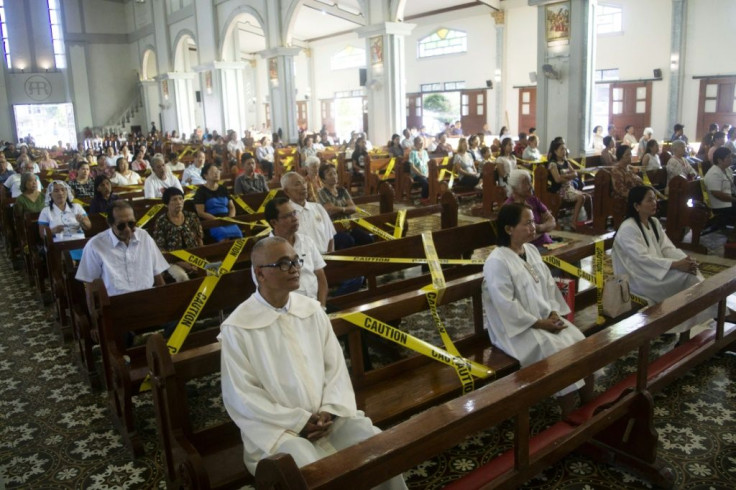Philippines Closes Off Capital To Fight Virus

Police began closing off access to the Philippines' sprawling and densely populated capital Manila on Sunday, imposing a quarantine that officials hope will curb the nation's rising number of coronavirus cases.
Officers in military fatigues and armed with rifles blocked off main roads into the city of some 12 million as domestic flights to and from Manila were halted early Sunday for a month-long isolation of the capital.
Mass gatherings and school at all levels have also been called off, but delays and exceptions have led public health experts to question how effective President Rodrigo Duterte's measures will be.
Striking steps were also being taken elsewhere in the county, with one church in the central Philippines deciding to hold its Sunday service with worshippers separated by yellow barricade tape.
The tape crisscrossed the pews so that no two worshippers could sit next to each other.
Though the Philippines has detected a fraction of the infections seen in hot spots such as China and Italy, its confirmed cases nearly doubled in recent days to 111, with eight deaths.
"We are sorry for the inconvenience, but we have orders to follow," said police corporal Meljayric Sajonia at a checkpoint on the southern edge of the capital.
The sealing of the city will not be total, as people going to work will be allowed to enter through checkpoints. Buses and trains will continue to operate inside Manila.

Passengers who showed work ID cards were allowed through, with temperature checks at some entry points.
"I have no problem with the checkpoints," said Michael Sausa, a hotel supervisor. "It's better that we prevent the spread of the virus."
Ahead of Sunday's closure, people packed grocery stores to stock up, and tens of thousands also boarded buses leaving the capital while it was still permitted.
Buses continued to roll into Manila's main transit hubs on Sunday, but many had one vacant seat between passengers as a precaution against the virus.
Manila's local leaders moved on Saturday to impose an 8:00 pm to 5:00 am curfew, with exceptions for travel to work, buy essentials or seek medical assistance.
However, Duterte's spokesman Salvador Panelo said the president would have to approve a curfew covering the entire city and has not yet done so.
Mayors of Manila's 17 local government areas are also pushing for shopping malls, the centres of life in the country, to be temporarily shut.
They remained open on Sunday but with temperature checks and free hand sanitiser at entrances.
© Copyright AFP 2024. All rights reserved.





















